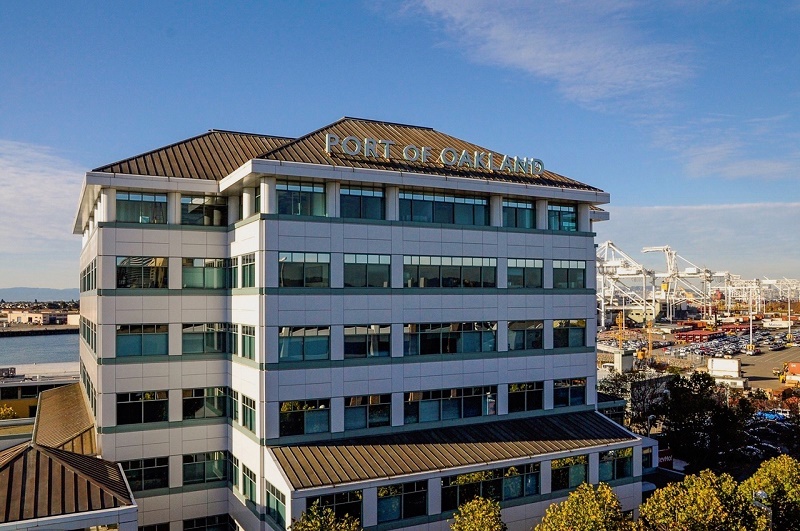The Port of Oakland said today it is refinancing $544 million of debt with its new bond offerings. The public agency completed its bond pricing Nov. 19, 2020. Due to favorable market conditions, the Port expects to achieve net present value savings of approximately $87 million. In quite simple terms, it’s like refinancing a home at a lower interest rate, thereby lowering the cost of future debt payments.
The first of two planned bond sales closed Dec. 3. Closings are when bonds are delivered to investors in exchange for funds. The next closing is set for Feb. 2, 2021.

S&P affirmed the Port of Oakland long-term ratings at ‘A+’ for the Port's senior-lien bonds, ‘A’ for its intermediate-lien bonds, and removed a negative watch they placed on the Port’s rating in August 2020.
As a key credit strength, S&P stated in its ratings report that the Port of Oakland has "very strong management and governance, as evidenced by an experienced, proactive, and effective management team with prudent financial, risk, and debt management practices."
Port of Oakland owns and operates Oakland International Airport (OAK). OAK is one of a small number of airports that S&P has not downgraded. S&P cited the Port's diverse revenue, strong liquidity position, and vital role as a provider of transportation infrastructure assets within Northern California. The outlook is still negative, but as the S&P report said, this is to reflect the unpredictability for air travel demand, the effects of which will continue to put pressure on the Port's financial metrics.
Fitch affirmed the Port’s senior lien rating at ‘A+’ and intermediate lien rating at ‘A’. Fitch recognized the Port’s diverse revenue and Maritime’s long-term lease agreements as strengths. The Fitch analysis also recognized the Port of Oakland’s conservative debt structure, modest capital plan, and strong financial position prior to impacts of the coronavirus. The outlook is negative, reflecting industry-wide adverse impacts of the coronavirus on Port operations and financial performance and the uncertainty around the timing and size of a recovery.
Moody’s assigned a rating of ‘A1’ on the Port’s Senior Lien refunding bonds and ‘A2’ on the Port’s intermediate Lien refunding bonds with a stable outlook. Moody’s cited good business diversity between the seaport and airport, strong liquidity, good debt service coverage, and a conservative financial plan that preserves flexibility, healthy liquidity, and debt coverage metrics. Moody’s outlook for the Port of Oakland is stable due to an expectation that continued maritime stability, a strong regional economy, and manageable risk on the maritime side will support stability through this period of potential revenue volatility.









